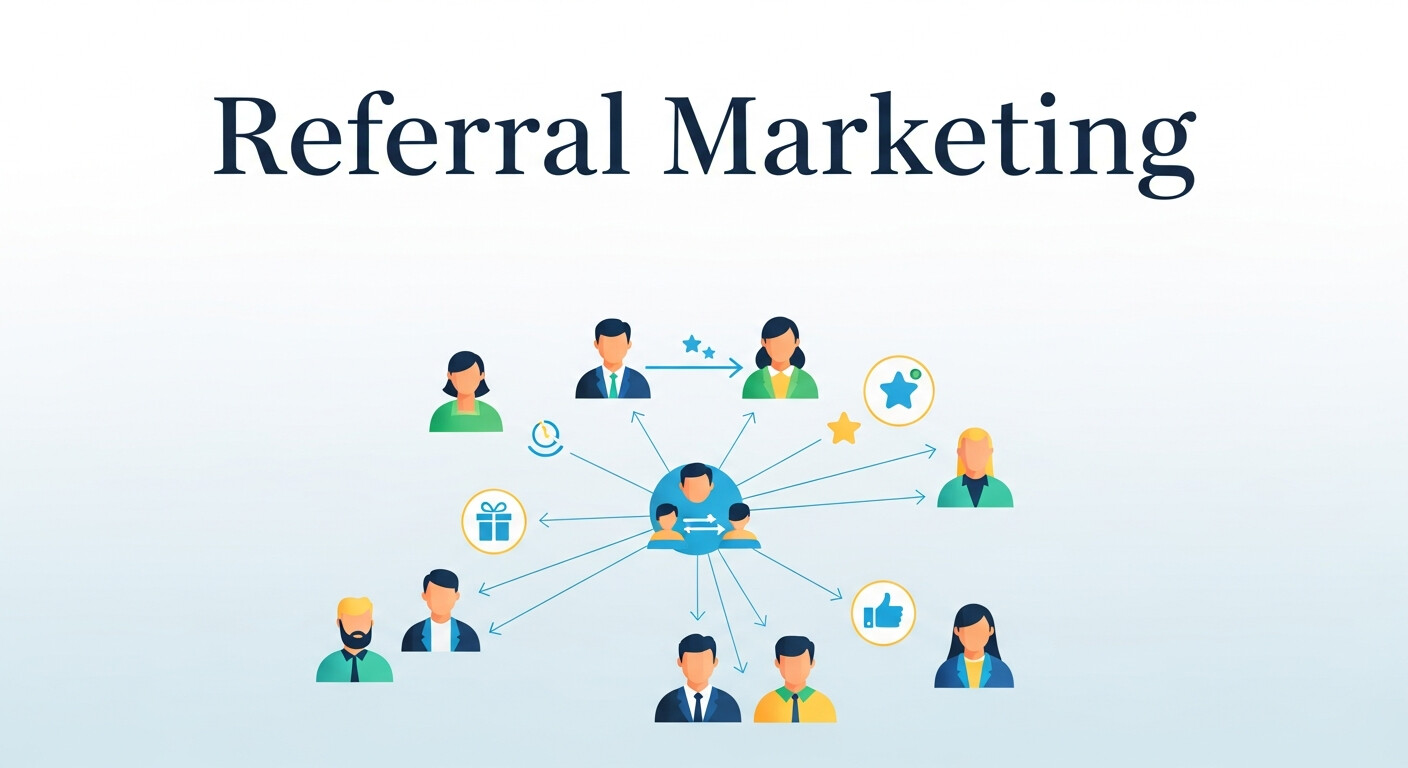Running a successful web development business requires more than just coding skills. While technical expertise forms the foundation, effective marketing strategies determine whether your business thrives or struggles to find clients. Many talented developers find themselves caught in a common trap: they can build amazing websites but struggle to market their own services effectively.
This comprehensive guide will walk you through proven marketing strategies specifically tailored for web development businesses. You’ll discover how to position your services, attract your ideal clients, and build a sustainable marketing system that generates consistent leads and revenue.
Understanding Your Web Development Market

Before diving into specific marketing tactics, you need to understand the competitive landscape of web development services. The market is saturated with freelancers, agencies, and platforms like Upwork, which means standing out requires strategic positioning.
Define Your Niche and Ideal Client
Generic web development services face intense competition and price pressure. Instead, focus on a specific niche or industry. Consider specializing in:
- E-commerce websites for small retail businesses
- Professional service websites for lawyers, doctors, or consultants
- Restaurant and hospitality websites
- Non-profit organizations
- SaaS landing pages and applications
Once you’ve identified your niche, create detailed buyer personas. A small business owner seeking an e-commerce site has different needs, pain points, and decision-making processes than a startup founder requiring a SaaS platform.
Research Your Competition
Analyze other web development businesses in your area and niche. Study their websites, pricing, service offerings, and client testimonials. Look for gaps in their services or underserved market segments you could target.
Pay attention to how they position themselves. Are they competing on price, speed, or specialized expertise? This research will help you find your unique positioning angle.
Building Your Web Development Brand

Your brand is more than just a logo—it’s how potential clients perceive your business and what differentiates you from competitors.
Craft Your Unique Value Proposition
Your value proposition should clearly communicate why clients should choose your web development services over alternatives. Focus on outcomes rather than technical features. Instead of saying “We build responsive websites with clean code,” try “We create websites that turn visitors into customers and grow your business.”
Consider these value proposition angles:
- Speed: “Launch-ready websites in 14 days”
- Results: “Websites that increase conversions by 40%”
- Specialization: “E-commerce experts who understand retail”
- Support: “Ongoing maintenance and optimization included”
Develop Professional Brand Assets
Your own website serves as your primary marketing tool and portfolio. Ensure it demonstrates your capabilities while being optimized for conversions. Include:
- Clear descriptions of your services and process
- High-quality portfolio showcasing diverse projects
- Client testimonials and case studies
- Professional headshots and team information
- Easy-to-find contact information and pricing
Create consistent branding across all touchpoints, including business cards, email signatures, and social media profiles.
Leveraging Smarter Communication to Increase Client Conversions
Effective communication plays a critical role in converting leads into paying clients. Beyond sending generic follow-ups, web development businesses can improve engagement by tailoring messages based on client behavior, interests, and project stage. Using Email Personalization Strategies, such as customized proposals, behavior-based follow-ups, and targeted newsletters, helps build trust and keeps your services top of mind. Personalized communication shows prospects that you understand their business challenges rather than offering a one-size-fits-all solution. When emails reference a client’s industry, website pain points, or previous conversations, response rates naturally increase. Over time, this approach strengthens relationships, shortens sales cycles, and improves client retention without significantly increasing marketing costs.
Positioning Your Services Around Client Technology Decisions
Many clients approach web developers without a clear understanding of which digital solution best fits their needs. This creates an opportunity to position your business as a trusted advisor rather than just a service provider. Educating prospects about Mobile vs Web Application Development helps them make informed decisions and demonstrates your strategic expertise. By explaining use cases, cost differences, scalability concerns, and maintenance requirements, you guide clients toward solutions aligned with their business goals. This consultative approach increases perceived value and justifies premium pricing. It also reduces project misunderstandings later, leading to smoother development processes and higher client satisfaction throughout the project lifecycle.
Staying Competitive Through Intelligent Automation and Innovation

As the digital landscape evolves, web development businesses must adapt to remain competitive. Automation and intelligent tools are no longer optional—they’re becoming essential for efficiency and scalability. Incorporating AI in Web Development can streamline repetitive tasks such as testing, performance optimization, content generation, and user experience analysis. From AI-assisted design tools to smart chatbots and predictive analytics, these technologies allow developers to deliver better results faster. Embracing innovation also strengthens your marketing message, positioning your business as forward-thinking and future-ready. Clients increasingly value partners who understand emerging technologies and can help them stay ahead in competitive markets.
Content Marketing for Web Development
Content marketing establishes your expertise and attracts potential clients searching for web development information online.
Start a Web Development Blog
Regular blogging helps with SEO and positions you as an industry expert. Write about topics your target audience cares about:
- “5 Website Mistakes That Cost Small Businesses Customers”
- “How to Choose the Right E-commerce Platform for Your Store”
- “Website Redesign Checklist for Professional Service Firms”
- “Mobile Optimization: Why Your Website Needs to Work on Phones”
Focus on providing genuine value rather than just promoting your services. Answer common questions, share industry insights, and offer practical tips.
Create Educational Resources
Develop downloadable resources that capture leads while providing value:
- Website planning templates
- SEO checklists
- Budget planning guides
- Technology comparison charts
These resources can be offered in exchange for email addresses, helping you build a contact list for future marketing efforts.
Leverage Video Content
Video content can effectively demonstrate your expertise and personality. Consider creating:
- Website teardowns and improvement suggestions
- Behind-the-scenes development process videos
- Client testimonial interviews
- Tutorial videos on web development topics
Local Marketing Strategies
Many web development businesses serve local clients, making local marketing essential for growth.
Optimize for Local SEO
Ensure your website appears in local search results when people search for “web development near me” or “website design [your city].” Key local SEO tactics include:
- Creating and Optimizing your Google Business Profile
- Encouraging satisfied clients to leave online reviews
- Including location-specific keywords in your website content
- Building citations in local business directories
Network in Your Community
Attend local business events, chamber of commerce meetings, and industry meetups. Building relationships with other business owners can lead to referrals and partnerships.
Consider partnering with complementary service providers like graphic designers, marketing consultants, or business coaches. These professionals often encounter clients who need websites.
Sponsor Local Events
Sponsoring community events, business conferences, or nonprofit fundraisers can increase your visibility while supporting your community. This strategy works particularly well for businesses targeting local clients.
Digital Marketing Channels
Online marketing channels can help you reach clients beyond your immediate geographic area.
Social Media Marketing
Different platforms serve different purposes for web development businesses:
LinkedIn works well for B2B web development services. Share industry insights, engage with potential clients’ content, and participate in relevant groups.
Instagram can showcase your visual work and company culture. Post screenshots of websites you’ve built, behind-the-scenes development photos, and team highlights.
Facebook helps with local marketing and community building. Share client success stories, participate in local business groups, and use Facebook ads to target specific demographics.
Pay-Per-Click Advertising
Google Ads and Facebook Ads can generate immediate traffic and leads. Start with small budgets and test different ad copy and targeting options. Focus on high-intent keywords like “web development services” or “custom website design.”
Track your cost per lead and conversion rates carefully. PPC can be expensive, so ensure you’re targeting the right keywords and demographics.
Email Marketing
Build and nurture an email list of potential clients, past clients, and industry contacts. Send regular newsletters with:
- Industry news and insights
- New portfolio pieces
- Client success stories
- Special offers or promotions
Segment your email list based on client type or project stage for more targeted messaging.
Client Relationship and Referral Marketing

Satisfied clients are your best source of new business through referrals and testimonials.
Deliver Exceptional Client Experience
Focus on clear communication, meeting deadlines, and exceeding expectations. A smooth project experience increases the likelihood of referrals and positive reviews.
Implement systems for:
- Regular project updates and progress reports
- Easy revision and feedback processes
- Comprehensive project documentation
- Post-launch support and maintenance
Create a Referral Program
Encourage satisfied clients to refer new business by offering incentives like:
- Discounts on future services
- Cash rewards for successful referrals
- Free maintenance or updates
- Exclusive access to new services
Make referring easy by providing clients with referral cards, email templates, or social media posts they can share.
Collect and Showcase Testimonials
Actively request testimonials from satisfied clients. Specific testimonials that mention results and outcomes are more effective than generic praise.
Display testimonials prominently on your website, in proposals, and in marketing materials. Video testimonials can be particularly powerful.
Measuring Your Marketing Success
Track key metrics to understand which marketing efforts generate the best return on investment.
Essential Metrics to Monitor
- Website traffic and lead generation
- Conversion rates from different marketing channels
- Cost per lead and customer acquisition cost
- Client lifetime value and repeat business rates
- Revenue growth and profit margins
Use tools like Google Analytics, CRM systems, and marketing automation platforms to track these metrics consistently.
Adjust Your Strategy Based on Data
Regularly review your marketing performance and adjust strategies based on what’s working. If content marketing generates more qualified leads than paid advertising, allocate more resources to content creation.
Test different approaches and measure results. Marketing is an ongoing process that requires continuous optimization.
Building Long-Term Marketing Systems
Successful web development businesses develop marketing systems that generate consistent results over time.
Create Standard Operating Procedures
Document your marketing processes so they can be repeated and improved. This includes:
- Content creation and publishing schedules
- Lead follow-up procedures
- Client onboarding processes
- Referral request systems
Invest in Marketing Tools and Automation
Use tools to streamline repetitive marketing tasks:
- Email marketing platforms for automated sequences
- Social media scheduling tools
- CRM systems for lead management
- Project management tools for client communication
Plan for Growth
As your business grows, your marketing needs will evolve. Budget for marketing expenses and consider when to hire marketing help or outsource specific tasks.
Transform Your Web Development Business Through Strategic Marketing
Effective marketing transforms web development businesses from struggling freelancers into thriving agencies. The key is consistency, measurement, and continuous improvement.
Start by implementing one or two strategies from this guide rather than trying everything at once. Focus on understanding your target market, delivering exceptional value, and building systems that can scale with your business.
Remember that marketing is a long-term investment. Results may not be immediate, but consistent effort will compound over time. The web development businesses that invest in marketing today will dominate their markets tomorrow.
Your technical skills got you started, but marketing will take your web development business to the next level. Choose the strategies that align with your goals and resources, then commit to executing them consistently.
Frequently Asked Questions (FAQ) – Marketing for Web Development Businesses
1. Why is marketing important for a web development business?
Marketing helps web developers consistently attract clients, stand out in a competitive market, and generate predictable revenue. Technical skills alone are not enough to grow a sustainable business.
2. What is the best marketing strategy for web developers?
There is no single best strategy, but a combination of niche positioning, content marketing, referrals, and local SEO works well for most web development businesses.
3. Should web developers focus on a niche?
Yes. Specializing in a niche helps reduce competition, improve pricing power, and attract clients who value your specific expertise rather than choosing based on cost alone.
4. How can a web developer get clients without paid ads?
Web developers can get clients through content marketing, SEO, referrals, networking, partnerships, social media, and showcasing strong portfolios and case studies.
5. Is local marketing effective for web development services?
Local marketing is highly effective, especially for developers serving small businesses. Local SEO, networking events, and partnerships can generate high-quality leads.
6. How long does it take to see results from marketing?
Marketing results vary by strategy. Paid ads can produce quick leads, while content marketing and SEO usually take several months but deliver long-term benefits.
7. What type of content should web developers create?
Web developers should create content that educates potential clients, such as website tips, common mistakes, redesign guides, platform comparisons, and case studies.
8. How important are testimonials for web development marketing?
Testimonials are extremely important. They build trust, reduce buyer hesitation, and provide social proof that your services deliver real results.
9. Should freelancers and agencies use the same marketing strategies?
The core strategies are similar, but agencies often focus more on branding, systems, and scalability, while freelancers may rely more on personal branding and referrals.
10. What is the biggest marketing mistake web developers make?
The biggest mistake is inconsistency—starting marketing efforts but not maintaining them long enough to see results. Successful marketing requires patience and repetition.







